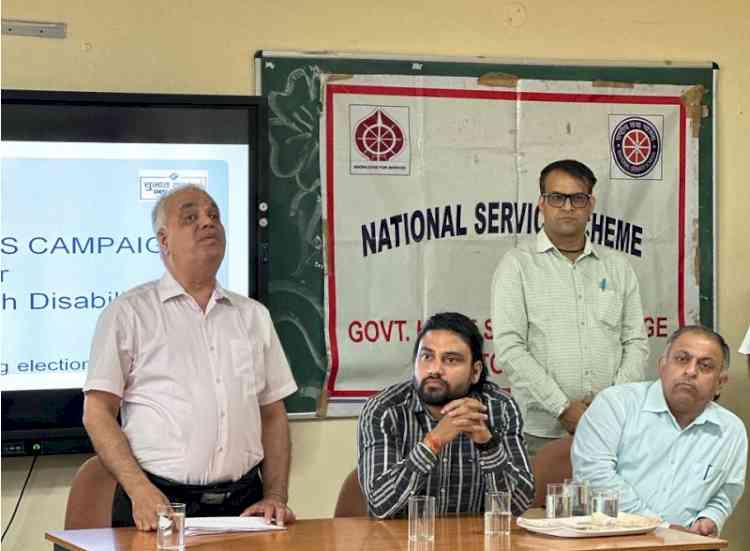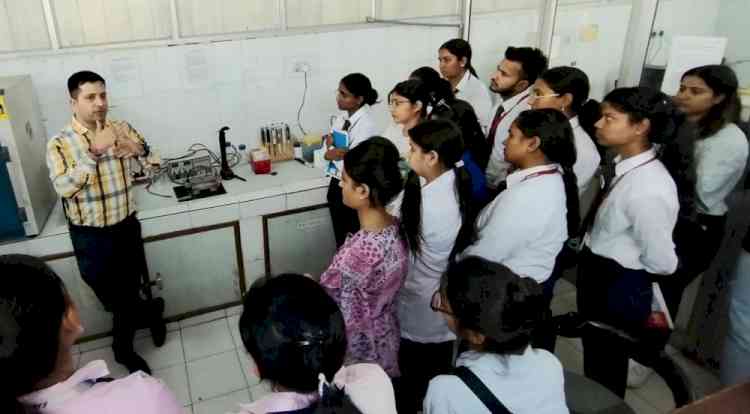Good Oral Health Important For Overall Well-Being- by Dr Namita Budhiraja, Dr Rita Rai & Dr Vineet Galhotra
Everyone wants to have a great smile which is why good oral hygiene is important. Having poor oral hygiene can lead to a variety of dental and medical problems in the future such as gum disease, infection, bone loss, heart disease, strokes...

Everyone wants to have a great smile which is why good oral hygiene is important. Having poor oral hygiene can lead to a variety of dental and medical problems in the future such as gum disease, infection, bone loss, heart disease, strokes and more. Regular check-ups and cleanings can prevent these problems as well as provide you with good oral hygiene.
Following is a list of basic dental hygiene steps you can take to promote great oral hygiene.
1. Proper Brushing
One of the easiest steps to do to help your teeth keep clean. When brushing your teeth, position the bristles at an angle of 45 degrees near the gum line. Both the gum line and the tooth surface should be in contact with the bristles. Brush the outer surfaces of the teeth using a back-and-forth, up-and-down motion, making sure to be done gently in order to avoid bleeding. To clean the inside surfaces of the teeth and gums, place the bristles at a 45-degree angle again and repeat the back-and-forth, up-and-down motion. Lastly, brush the surfaces of your tongue and the roof of your mouth to remove bacteria, which might cause bad breath.
Try to brush at least twice a day to prevent acid buildup from the breakdown of food by bacteria. However, if your work or activities prevent you from doing this, thoroughly rinse your mouth with water after eating to minimize the amount of food that would serve as substrate for the bacteria.
2. Flossing
We know, it’s a chore and alot of times forgetful after brushing if rushing out the door or heading to bed. However, flossing can help you remove food particles and other detrimental substances that brushing regularly cannot. Flossing allows you to reach deep between your teeth where the toothbrush bristles cannot reach or even mouthwash cannot wash away. We recommend flossing at least once a day.
3. Avoid Tobacco
This will be a big favor to your teeth. One, it will save you from oral cancer and periodontal complications. Two, it will save you from the countless ill effects caused by the agents used to mask the smell of tobacco. For example, if you smoke a cigarette, you may use candies, tea or coffee to mask the smoky breath and odor. This doubles the amount of damage caused.
4. Limit Sodas, Coffee and Alcohol
Although these beverages contain a high level of phosphorous, which is a necessary mineral for a healthy mouth, too much phosphorous can deplete the body’s level of calcium. This causes dental hygiene problems such as tooth decay and gum disease. Beverages containing additives such as corn syrup and food dye can make pearly white teeth appear dull and discolored. Therefore, it is best to choose beverages like milk, which helps strengthen teeth and build stronger enamel, giving you a healthy, beautiful smile and water which hydrates your body longer than sugary d
5. Consume Calcium and other Vitamins that are good for the body
You need plenty of calcium for your teeth. It is essential for the teeth as well as your bones. It is better to drink milk, fortified orange juice and to eat yogurt, broccoli, cheese, and other dairy products. You can also take a calcium supplement, taking different doses according to your age and necessity as per prescription. Calcium and Vitamin D are necessary for maintaining the health of gums and teeth. Vitamin B complex is also essential for the protection of gums and teeth from cracking and bleeding. Copper, zinc, iodine, iron and potassium are also required for maintaining healthy dental hygiene.
6. Visit Your Dentist
You should visit your dentist at least twice a year to have a full hygiene treatment performed. Also at these appointments, a comprehensive exam is taken with x-rays to help detect and prevent future dental treatments from occurring.
7. Use Mouthwash alongside brushing and flossing
Mouthwash is not particularly necessary and not all mouthwashes are useful. Warm saline rinses is particularly helpful and it does not have any side effects. It can help maintain good breath as well as help maintain strong teeth. Mouthwash cannot do all the work but if your are already brushing, flossing, visiting the dentist and eating well, mouthwash is the cherry on top that will make your dental health great.
* Dr Namita Budhiraja is Professor & Head), Dr Rita Rai Professor and Dr Vineet Galhotra is Associate Professor at DMCH, Ludhiana.
Date:
Sunday, January 3, 2016

 cityairnews
cityairnews 
















